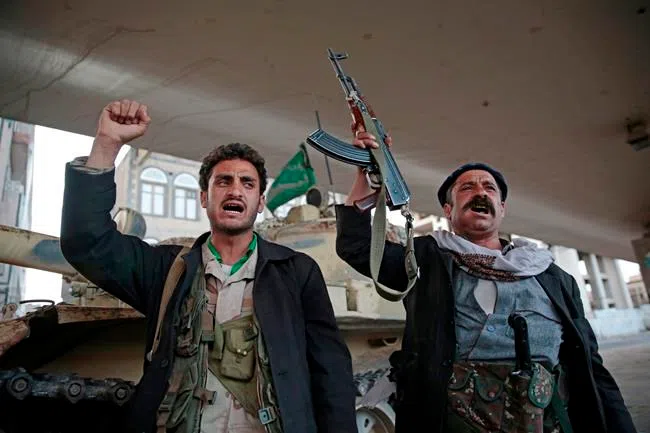
Yemeni rebels say they will halt rocket fire at Saudi Arabia
SANAA, Yemen — Yemen’s Shiite rebels said Monday that they will halt rocket fire into Saudi Arabia for the sake of peace efforts, answering a key Saudi demand in the latest push to stop the civil war in the Arab world’s poorest country.
But the rebels also said they had fired a ballistic missile into Saudi Arabia overnight in response to an attempted border incursion and a Saudi airstrike, and that they reserved the right to respond to attacks.
For the past three years, a U.S.-backed, Saudi-led coalition has been waging war against the Iran-aligned rebels, known as Houthis, to restore Yemen’s internationally recognized government. The rebels say they have long been excluded from that government and aim to rectify historic grievances.
Rebel leader Mohammed Ali al-Houthi announced in a statement that the rebels had ordered the cessation of rocket and drone attacks on the Saudis and forces loyal to the United Arab Emirates, a leading coalition member, at the request of U.N. envoy Martin Griffiths.
